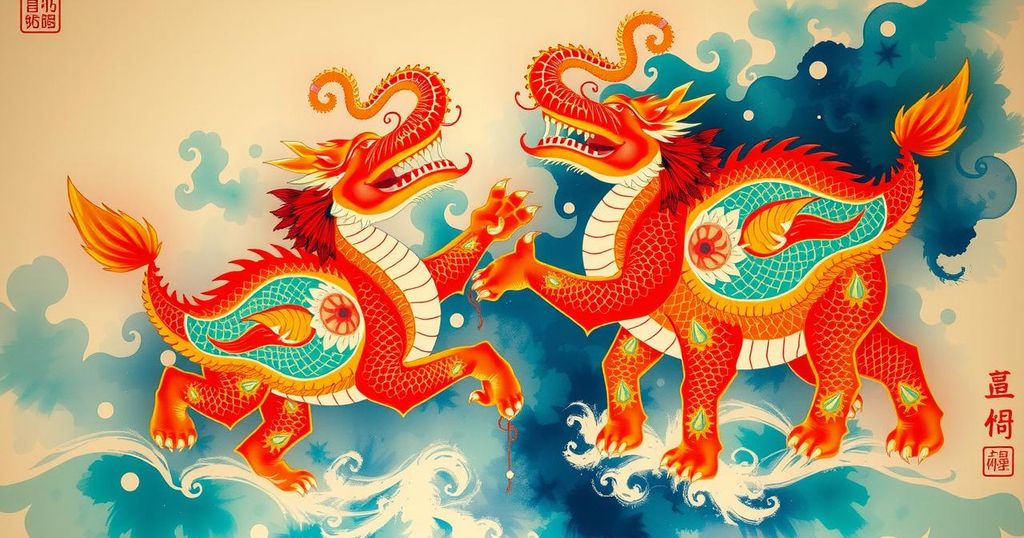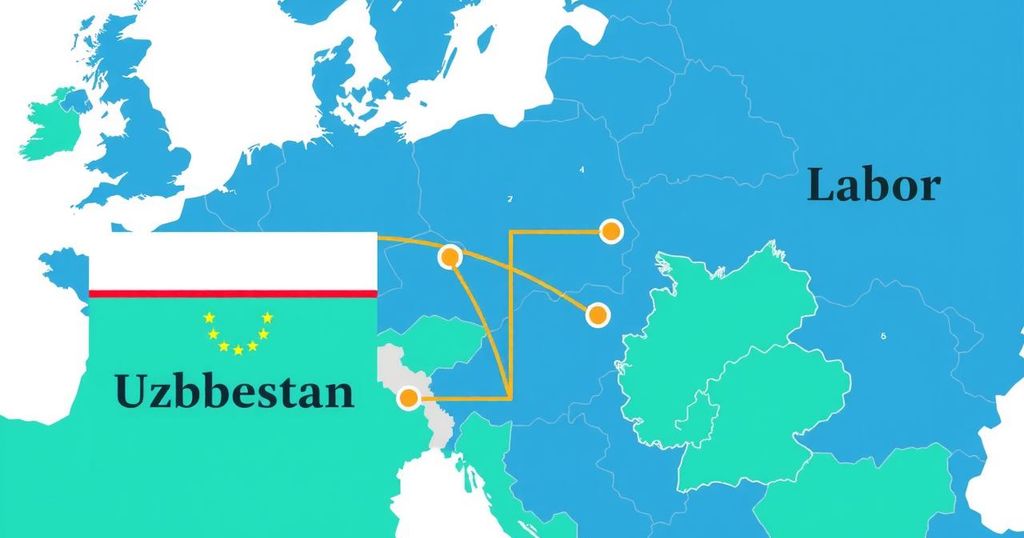China’s Strategic Shift Amidst Trump’s Trade War
Xi Jinping seeks cooperation with India to mitigate US trade tariffs. China’s tariffs from the US have surged to an average of 65%, prompting a pivot towards EU and alternative markets. Concerns grow over the impact of tariffs on global trade and the potential for economic downturns, with an emphasis on domestic growth strategies for China. The outlook for US-China relations remains grim as new tariffs loom and negotiations falter.
China’s President, Xi Jinping, has expressed readiness to engage in cooperation to mitigate the adverse impacts of Donald Trump’s trade tariffs. He recently addressed Indian President Droupadi Murmu, advocating for strengthened bilateral trade relations, encapsulated in the metaphorical ‘Dragon-Elephant Tango’ in recognition of their 75 years of trade partnership.
In response to the US tariffs surging to an average of 65%, China is actively pursuing alternative export markets to counteract the escalating trade barriers. Following a sharp financial market sell-off, Beijing announced reciprocal measures, increasing tariffs on US goods by 34% effective April 10.
Concerns are escalating regarding China’s possible strategies such as dumping goods or expanding subsidies to bolster its domestic firms’ competitiveness abroad. The trade conflict may prompt a shift in global trading dynamics toward authoritarian regimes like China, particularly as companies like BYD seek expansion in Europe despite facing existing EU and UK tariffs.
Former UK Treasury minister Jim O’Neill emphasized the necessity for closer trade relationships with Beijing as a response to Trump’s aggressive tariff policies. He highlighted that the G7’s cumulative economic might equals that of the US, suggesting critical discussions to lower trade barriers among allies.
China’s exports to the EU have surpassed those to the US, indicating a change in global trade dynamics intensified by earlier tensions. Professor Christopher Dent noted that Trump’s policies could encourage nations to establish stronger trading alliances, which may pivot toward multilateralism and liberal trading practices.
EU trade commissioner Maroš Šefčovič indicated that establishing a more open trade relationship with China could take considerable time, contingent upon reciprocal trade flows and investments. The UK remains cautious, balancing its lower tariffs with the need to avoid falling victim to an influx of inexpensive Chinese goods that may jeopardize local jobs.
The ongoing tariff conflict is drawing parallels to significant economic upheavals like the 1970s oil crisis. John Denton from the International Chambers of Commerce has urged politicians to avoid retaliatory tariffs to circumvent an inflationary spiral that could lead to a global economic downturn.
The situation becomes dire as Trump plans to eliminate a tariff exemption on small packages from China, targeting numerous goods central to various businesses. As a result, firms reliant on China face an uncertain future, stressing the need to diversify supply chains effectively.
Despite Xi’s outreach towards India, skepticism lingers due to China’s considerable trade advantage and unresolved tensions, particularly concerning territorial disputes. Analysts indicate that as the trade conflict intensifies, China’s focus may shift toward stimulating domestic consumption amid escalating US tariffs and a potential global recession.
In a broader context, the prospects for repair in US-China relations appear bleak. Trump’s administration remains committed to imposing high tariffs on Chinese goods while exploring the possibility of negotiation linked to issues like the ownership of TikTok. Analysts conclude that Xi’s administration may increasingly depend on domestic growth strategies and increased stimulus measures as the global economy faces challenges.
In conclusion, the trade dynamics between China and the US have reached an unprecedented level of tension, compelling China to seek alternative partnerships and domestic solutions. Xi Jinping’s proactive outreach, particularly to India and the EU, highlights a strategic pivot amidst growing isolation from traditional markets. With tariffs poised to escalate and economic strains intensifying, the emphasis on domestic consumption and investment stimulus will likely become crucial for China’s economic resilience going forward.
Original Source: www.theguardian.com








Post Comment